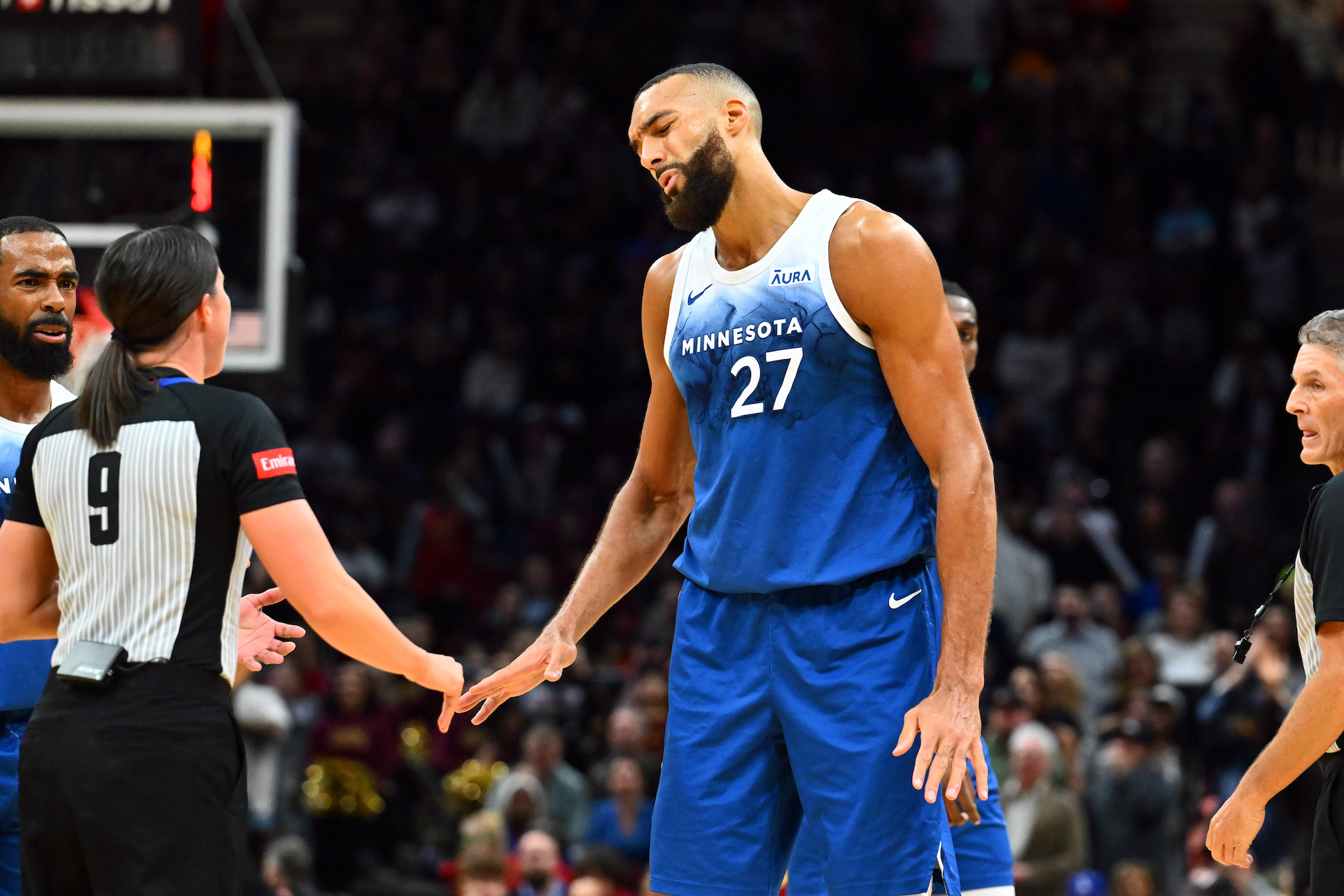On Friday, Rudy Gobert was assessed a technical foul for flashing the money-rubbing sign after a referee called him for his sixth foul of the night, disqualifying him from the rest of the game, which the Minnesota Timberwolves would go on to lose to the Cleveland Cavaliers, 104-113. Afterward, as reported by The Athletic, Gobert told the press about the gesture: “My reaction, which I think is truth—it’s what I truly believe—even if it’s the truth, it wasn’t the time for me to react that way,” before noting that the move was immature and likely cost his team the game. He further clarified what he meant by "the truth" as well.
“I made some mistakes. I air-balled a dunk. Mistakes happen. Referees make mistakes, too. But sometimes I think it’s more than mistakes. I think everyone that’s in this league knows. I think it’s got to get better. I think it’s hurting our game. I know the betting and all that is becoming bigger and bigger, but it shouldn’t feel that way.”
For this insinuation that the referees made decisions based on gambling, the NBA brought the hammer down with a $100,000 fine. An eyebrow-raising number for what was otherwise mostly just typical player bellyaching. The league claimed that Gobert's prior antics and referee crying went into the tally.
Gobert acted petulantly, certainly, and is generally thought to be an asshole, but it is interesting that the league handed down such a high fine for this. The NBA is not exactly a neutral party in all of this; the league, like all other pro sports, has signed lucrative deals with sports betting companies. If gambling and basketball have never been as intertwined as today, is it wrong to ask—actually ask, not insinuate as Gobert did—whether that closeness may have effects on actual games?
When NFL players are caught gambling on games in their sport, the league makes examples out of them. It's the same with Gobert, who did not bet but implied that someone else might have. Both leagues have strained themselves to make it clear that even as they assert their independence they remain steadfast in their support of betting as a business.
You do not have to look far to find evidence Big Gambling has infected everything. You can't avoid advertising for sportsbooks and gambling apps: They're bannered throughout stadiums, sports TV pundits and podcasters are doing ad reads every day, commercials with big-name celebs are goading you with odds and parlays and incentives. The same Athletic article reporting the Gobert incident had a banner ad for an MGM sportsbook when I first read it. Gambling is big business, and people are hooked, and many people are going to get rich off of it—most of them not bettors but business partners. NBA Commissioner Adam Silver proclaimed it was time for professional sports to embrace gambling in a New York Times op-ed back in 2014. The league then signed a contract with MGM Resorts to become the official gaming partner of the NBA. The Phoenix Suns became the first team to have a sportsbook inside the arena.
In this climate, it's important to the league to squelch conspiratorial voices like Gobert's as quickly as possible. But what is the NBA, or any league, actually doing to prevent what he's alleging from actually taking place or from being discovered? The league says it has data scientists watching games for any signs of "integrity issues," and that each team has a hall monitor to watch for gambling. But we know the statsheet is already a fuzzy thing.
I am generally of the same mind as Bomani Jones on this topic, in that professional sports are very clearly hurtling towards some kind of a huge scandal. The question is whether that comes in the form of the rise of gambling addiction, an inevitable backlash after enough kids gamble their college fund away, or because of a major game-fixing scandal. Back when gambling was more illicit, point-fixing was all over sports at almost every level. I have not heard a compelling case for why that would change just because gambling has become the domain of the average fan and not just the protagonist of a Safdie brothers movie.
Rudy Gobert was being a jerk. He's mad at some calls that went against him, like players are every night. He doesn't have inside info on a scandal. He's talking out his ass. But one day, and probably one day soon, a player's going to make the same claims, and they're going to be right.






